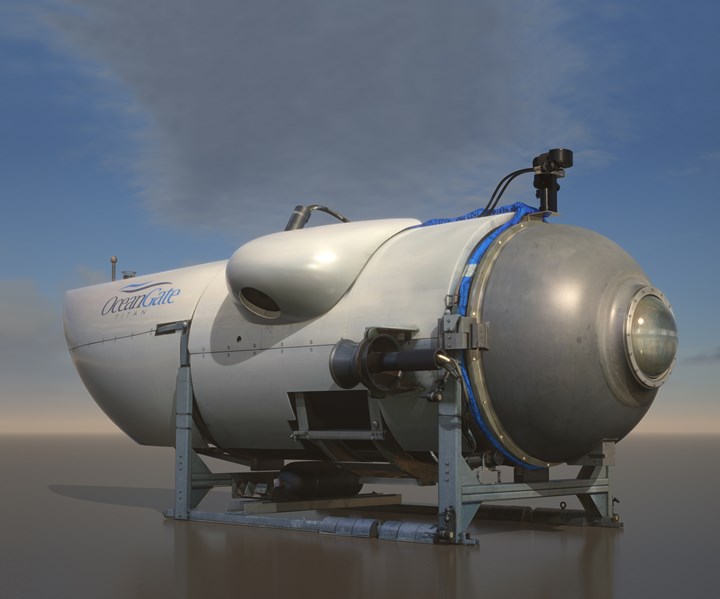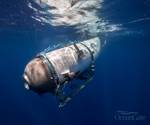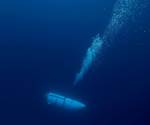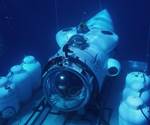NASA, OceanGate collaborate on manufacture of carbon fiber pressure vessels
The pressure vessels built through this agreement will be used on OceanGate’s latest deep-sea Cyclops submersible.

Source | OceanGate
OceanGate (Everett, Wash., U.S.) announced on Feb. 26 that it has executed an agreement with NASA for the development of a carbon fiber pressure vessel for use in the company’s composites-intensive deep-sea submersibles.
NASA’s Marshall Space Flight Center in Huntsville, Ala., U.S., will serve as the facility where the development and manufacturing of a new aerospace-grade hull is completed. This design effort is key to OceanGate completing its latest Cyclops-class submersible that is intended to dive to 6,000 meters (19,800 feet) with five crewmembers on board.
Read more about the design and manufacture of OceanGate’s Cyclops 2 submersible: “Composite submersibles: Under pressure in deep, deep waters.”
“We continue to receive more demand for Titanic, deep-sea research and environmental supervision of deep-sea mining missions that very few submersibles in the world have the capability of supporting. NASA’s advanced composite manufacturing capability is ideally suited for the high precision and high-quality requirements of our latest hull design. OceanGate’s primary goal is to open the oceans and make exploring, researching and documenting deep ocean sights safer and more accessible to not only researchers and governmental agencies, but also to citizen explorers. We look forward to working with NASA to do just that,” explains OceanGate CEO and founder, Stockton Rush.
“NASA is committed to cutting-edge composites research and development that will not only further our deep space exploration goals, but will also improve materials and manufacturing for American industry,” says John Vickers, principal technologist for advanced manufacturing technology at NASA. “This Space Act Agreement with OceanGate is a great example of how NASA partners with companies to bring space technology back down to Earth.”
Related Content
-
NCC reaches milestone in composite cryogenic hydrogen program
The National Composites Centre is testing composite cryogenic storage tank demonstrators with increasing complexity, to support U.K. transition to the hydrogen economy.
-
ECOHYDRO project to enable recyclable composites for hydrogen storage
With the involvement of two schools from the Institut Mines-Télécom, the 4-year project aims to improve the intrinsic properties of a composite material based on Elium via four concrete demonstrators.
-
Composites end markets: Energy (2024)
Composites are used widely in oil/gas, wind and other renewable energy applications. Despite market challenges, growth potential and innovation for composites continue.

.jpg;width=70;height=70;mode=crop)














